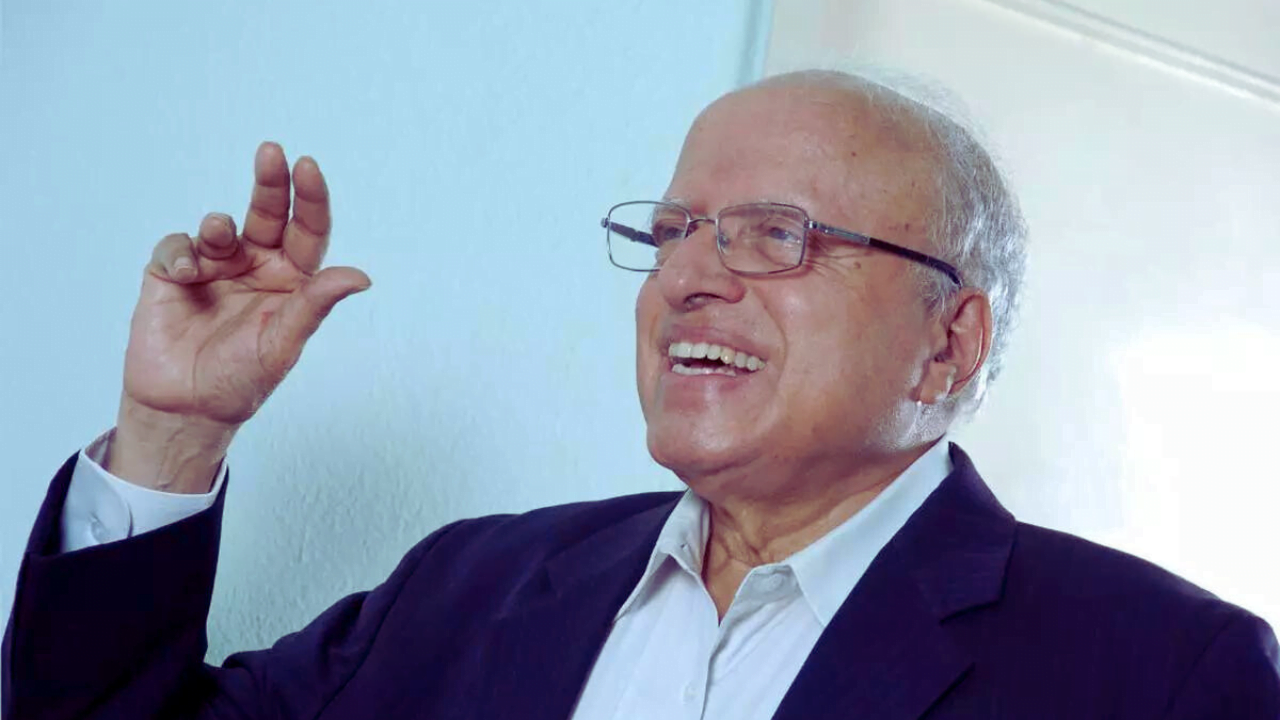Dr. M.S. Swaminathan, a renowned agricultural scientist and the father of the Green Revolution in India, died on Thursday at the age of 98 in Chennai.
His health had not been good for a few days, Dr. Soumya Swaminathan, the daughter of Dr. M.S. Swaminathan and a former deputy director-general of the World Health Organization (WHO), told the media. He died gently this morning… right at the end. He cared deeply for the wellbeing of farmers and the advancement of the most vulnerable members of society. I want to express my gratitude to everyone who sent their well wishes on behalf of the family.
“I hope that the legacy that my father and my mother, Mina Swaminathan, set for us will be carried on by all three of us girls… One of those who understood that women were frequently excluded in agriculture was my father. He started a lot of initiatives to empower women. His concepts gave rise to initiatives like the Women Empowerment Plan, which supported female farmers. He was on the Sixth Plan Commission when it first included a chapter on women and the environment. He was really proud of these achievements, continued Dr. Soumya Swaminathan.
He founded the M.S. Swaminathan Research Foundation (MSSRF) in 1988 and funded it with proceeds from the 1987 first-place award of the World Food Prize. A representative of the company confirmed that he passed away about 11 AM.
“Deeply saddened by the passing of Dr. M.S. Swaminathan Ji,” the prime minister wrote. His groundbreaking effort in agricultural research and innovation at a pivotal point in our nation’s history changed the lives of millions of people and guaranteed food security for our nation. He has made an incredible contribution to Indian agriculture.
He was born in the Tanjore area of Tamil Nadu, and in the 1960s, as the nation struggled with the possibility of widespread starvation, he created and promoted high-yielding wheat and rice varieties using the money from the first World Food Prize awarded to him.
Deeply grieved by the passing of Dr. M.S. Swaminathan Ji, the father of India’s Green Revolution, J.P. Nadda, the president of the BJP, tweeted. Dr. Swaminathan was a complex individual whose crucial contributions to agricultural innovation and research altered the path of history. I send my sincere sympathies to his family and supporters.
In developing agricultural policies, Dr. Swaminathan collaborated closely with the late Prime Minister Indira Gandhi. He also presided over a number of illustrious international gatherings, including the 1974 United Nations World Food Congress in Rome.
For More: News
Dr. Soumya Swaminathan took over as chair of the M.S. Swaminathan Research Foundation (MSSRF) in January. She held the position of Chief Scientist at the World Health Organization (WHO) from 2019 to 2022 before to this appointment.
- Early Life and Education: Dr. M.S. Swaminathan was born on August 7, 1925, in Kumbakonam, Tamil Nadu, India. He obtained his bachelor’s degree in agricultural science from the University of Madras and went on to earn a Ph.D. in Genetics from the University of Cambridge.
- The Green Revolution: Dr. Swaminathan played a pivotal role in India’s Green Revolution during the 1960s and 1970s. He introduced and promoted the cultivation of high-yielding varieties of wheat and rice, which significantly increased crop yields and helped alleviate food scarcity issues in the country.
- S. Swaminathan Research Foundation (MSSRF): In 1988, he established the M.S. Swaminathan Research Foundation (MSSRF) with the income from the first World Food Prize he received in 1987. The foundation focuses on sustainable agriculture and rural development.
- Awards and Honors: Dr. Swaminathan’s groundbreaking work earned him numerous awards and honors, including the World Food Prize (1987), the Padma Shri (1967), the Padma Bhushan (1972), and the Padma Vibhushan (1989), among others.
- Advocacy for Sustainable Agriculture: Throughout his career, Dr. Swaminathan has been a strong advocate for sustainable agriculture and the responsible use of natural resources. He emphasizes the importance of conservation and eco-friendly farming practices.
- Role in Policy Formulation: He has served on various national and international committees related to agriculture, food security, and sustainable development. He worked closely with Indian governments to formulate agricultural policies and programs.
- Gender Empowerment: Dr. Swaminathan recognized the importance of women in agriculture and championed women’s empowerment in rural areas. He initiated programs to support and uplift women farmers.
- Global Impact: His work has had a global impact, influencing agricultural practices and policies worldwide. His advocacy for food security and sustainable agriculture has made him a respected figure on the international stage.
- Continued Influence: Dr. M.S. Swaminathan’s contributions to agriculture and sustainable development continue to be recognized and celebrated. His legacy lives on through the work of the M.S. Swaminathan Research Foundation and the impact of the Green Revolution in India.
- Personal Life: Dr. Swaminathan comes from a family deeply rooted in agriculture, and his commitment to improving the lives of farmers and ensuring food security in India has been a driving force throughout his life.
